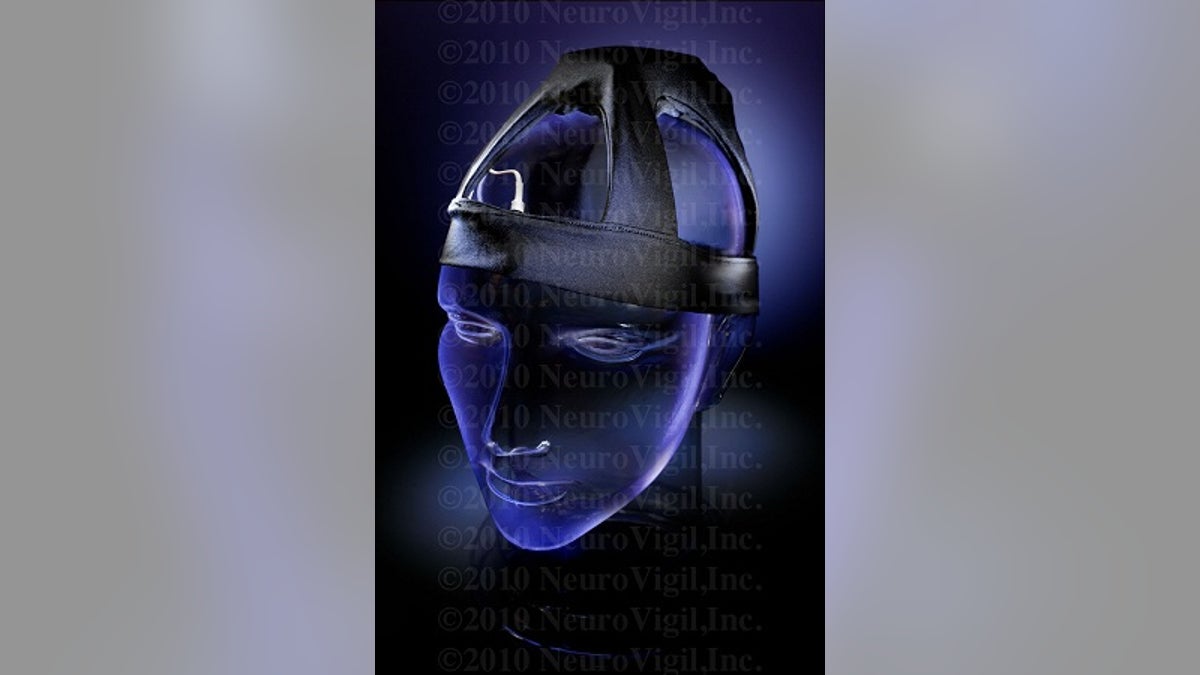
Mind-controlled Star Wars games are one thing, but what about using a thought-tracking device for a more practical application? Using technology to monitor brain waves could, for instance, offer a means of communication for people who can't speak.
Take the iBrain, one such device that's being tested on physicist Stephen Hawking. NeuroVigil, the company behind the project, hopes that the iBrain can interpret Hawking's brain waves according to an algorithm that would allow them to be translated into words or letters.
The iBrain itself is an electronics box strapped to a head harness along with electrodes. There's also a USB port on board, which lets researchers record and transfer data as well as recharge the iBrain's battery via a computer. Though the device has lofty ambitions--Hawking's partcipation in NeruoVigil's experiments is part of a larger effort to see how the iBrain could help patients with Lou Gehrig's disease--it's also being used to monitor sleep and to assess the effectiveness of neurological drugs in pharmaceutical trials.
